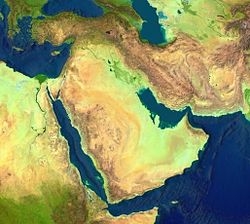Middle East economies are set to beat forecasted figures this year, with the GDP growth of 3.8% in 2012 and an expected 3.3% in 2013, according to the ICAEW's latest quarterly report, Economic Insights: Middle East, launched today at The Ritz Carlton DIFC.
The report, produced by ICAEW's economics partner Cebr (Centre for Economic and Business Research), explains that earlier forecasts for Middle Eastern economies were conservative as a result of the volatility in the Eurozone and slowing global economic activity at the end of 2011. While uncertainty in the Eurozone remains, money printing by Western central banks has contributed to higher oil prices than previously expected, providing a fillip to the Middle East.
The report focuses on Gulf Cooperation Council (GCC) member countries (United Arab Emirates, Bahrain, Saudi Arabia, Oman, Qatar and Kuwait), plus Egypt, Iran, Iraq, Jordan and Lebanon, sometimes referred to as GCC+5. Research found that oil and commodity prices were significantly higher than expected and that production has risen sharply.
The property sector in the UAE has been more resilient than many expected with deal flows strong in Q1 of 2012 and prices rising. Furthermore, recently proposed legislation limiting advance selling is likely to help stabilize investor confidence moving forward.
Growth in the Middle East is expected to be significantly higher than the global average and could approach the growth rates expected for emerging markets this year. However, with the emerging markets experiencing 'growing pains', the report suggests that growth will cool in 2013 as China and India's demand for energy cools. However, emerging market demand is expected to drive the world economy forward in the medium term; this is good news for the Middle East which is increasingly tied to emerging markets rather than the sluggish economies of the West By 2013, Middle East exports to Emerging Markets are expected to overtake exports to the Advanced Economies (predominantly of the West).
Amanda Line, Regional Director, ICAEW Middle East, said: "The prospects for the Middle East have improved dramatically since the beginning of the year, partly thanks to higher oil prices. This has had a positive impact on trade, as demonstrated by the fact that Middle East trade volumes are growing robustly year-on-year[1]. However, with the region's economy significantly affected by emerging markets' thirst for oil any reduction in energy demand from big customers like China and India could lead to a cooling off in growth. This means it is still very important to press on with building a diversified economy across MENA that will reduce reliance on oil alone."
Press Release
25 May























































